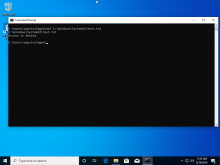Microsoft discloses security breach of customer support database
Microsoft disclosed today a security breach that took place last month in December 2019.
In a blog post today, the OS maker said that an internal customer support database that was storing anonymized user analytics was accidentally exposed online without proper protections between December 5 and December 31.













































































